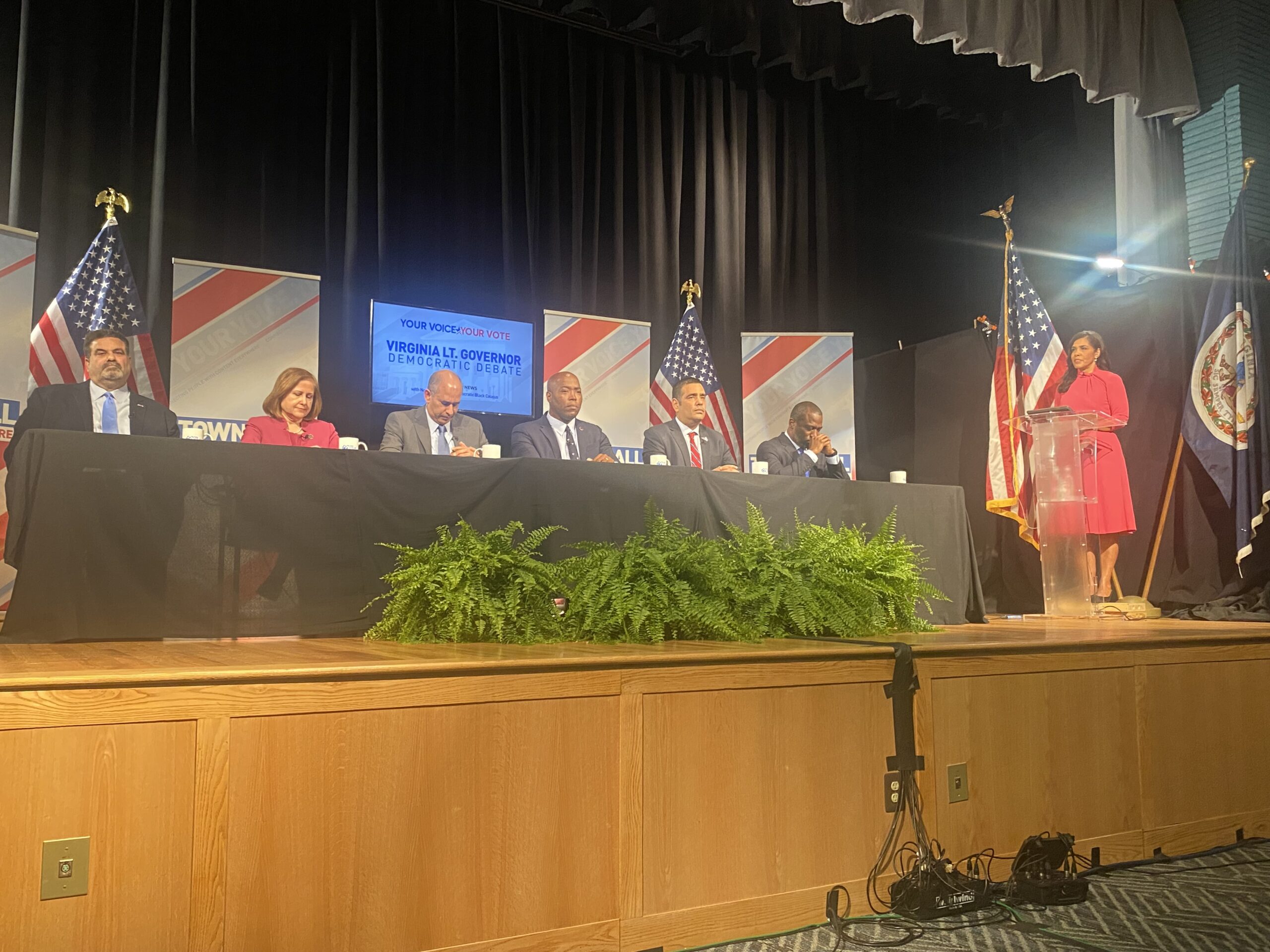Over 1,600 people removed from voter rolls under Youngkin order; groups seek court injunction
by Charlotte Rene Woods, Virginia Mercury
Over 1,600 voters have been removed from the rolls since an Aug. 7 executive order by Gov. Glenn Youngkin, plaintiffs in a lawsuit against the governor said Wednesday on a press call.
Seventy-five voter registrations were denied in the same time period, said Ryan Snow, counsel with Lawyers Committee for Civil Rights Under Law.
The U.S. Department of Justice has filed a lawsuit against Virginia for removing voters from rolls within 90 days of this year’s elections. Virginia’s League of Women Voters and the Virginia Coalition for Immigrants Rights had previously filed a similar suit. Earlier this week a federal judge ordered the Youngkin administration to release the names of affected voters as part of discovery in the League of Women Voters case and officials had to comply by Wednesday.
Snow confirmed to The Mercury that the numbers came from a list provided to the plaintiffs. The Mercury also has a pending Freedom of Information Act request seeking numbers of people flagged for removal and how many may have been reinstated or not removed.
The case will have a hearing in Alexandria Thursday morning where plaintiffs hope for an injunction of Youngkin’s order.
Ahead of the hearing, immigration advocates and other groups joined a press call Wednesday to lay out their case to the public.
The DOJ suit argues that voter removals may have disproportionately affected minority communities and could have wrongfully removed eligible voters without adequate notice or due process less than 90 days before the presidential election. Both cases allege this violates the federal National Voter Registration Act. That act imposes a 90-day quiet period on systematic voter roll purges.
“People in immigrant communities are hard workers — many of them working seven days a week,” said Beatriz Amberman, chair of the Virginia Coalition of Latino Organizations. “There was not enough time assigned to inform the community and to have them get time off from work to go to the registrar’s office.”
Amberman said the administration could have partnered with Virginia’s Latino and Asian advisory boards “to help get the word out” for people to check their statuses as soon as possible in order for there to be time to cure any paperwork mistakes. She also said the administration could have utilized its communications staff to host press conferences with public service announcements.
“If voter records need to be reviewed or updated, the review should be done well in advance. This would ensure that voters have enough time to correct any issues on their voter registrations,” she said. “Our government has more resources to do this right than the average citizen.”
In defending his executive order, Youngkin has stressed to national media that it is based on precedent of a 2006 state law — carried by a Republican who went on to work for former president Donald Trump, and signed by democratic then-Gov. Tim Kaine — and that the process is “individualized.”
“It starts with a basic premise that when someone walks into one of our DMV’s and self-identifies as a noncitizen, and then they end up on the voter rolls, either purposely or by accident, that we go through a process individualized, not systematic, an individualized process based on that person’s self-identification as a noncitizen, to give them 14 days to affirm they are a citizen and if they don’t, they come off the voter rolls,” Youngkin told Fox News’ Shannon Bream.
The 2006 law directs DMV to send monthly lists of people who failed to identify as citizens to the state Board of Elections to be further forwarded to local registrars. Youngkin’s Aug. 7 executive order called for daily purges based on DMV data.
Virginia Attorney General Jason Miyares has filed opposition to the plaintiffs’ motion that supports Youngkin’s individualized argument.
The filing focuses on the individual nature of self-reporting as a non-citizen, which suggests that factor evades the “systematic” qualifier in the National Voter Registration Act’s 90-day quiet period.
Snow argues that daily purges reduce the opportunity to catch mistakes before initiating a purge and could point to a systematic rather than individualized handling of the process.
“We know there are voters who registered decades ago and have updated their driver’s license many times, and if they check a box incorrectly, now they’re subject for removal,” Snow said. “We believe that under normal circumstances (with) information submitted from DMV data, there may be some system in place, at least, that would catch this.”
The daily removals “are a big part” of the case, he added because it “allows zero opportunity for anyone at any step in the process to verify that the basis for removal is accurate.”
(Virginia Mercury is part of States Newsroom, a nonprofit news network supported by grants and a coalition of donors as a 501c(3) public charity. Virginia Mercury maintains editorial independence. Contact Editor Samantha Willis for questions: info@virginiamercury.com.)



